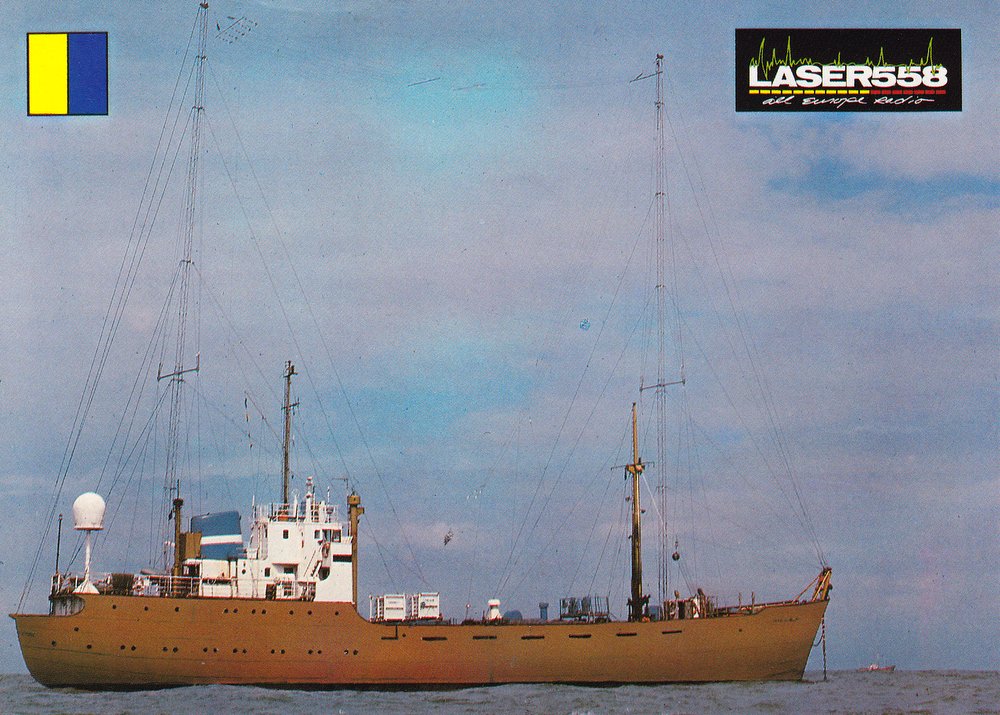THE EIGHTIES
When the Radio Caroline ship, the mv Mi Amigo, sank beneath the waves in March 1980, it looked like the end for offshore radio. Legal commercial stations were now licensed all across Britain. Was there
still any demand for broadcasting from the sea?
Yes there was!
In 1983 Radio Caroline returned from a brand new ship, the mv Ross Revenge, and the following year the mv Communicator dropped anchor. This ship was the home to Laser-558, where you were “never more than a minute away
from music”. At a time when licensed stations still had to operate within strict ‘needletime’ restrictions, this non-stop pop station with a team of highly professional American DJs rapidly won a massive
audience. For the first time since the sixties, millions of people were listening to offshore radio again. The government tried to starve it off the air but, ultimately, it was lack of advertising that forced the closure.
Laser-558 went silent in November 1985. It was replaced the following year by Laser Hot Hits but this second station was less successful and only lasted a few months.
Through DJ prosecutions, a government siege, the collapse of the ship's enormous aerial mast, a change in the law forcing the ship to a less protected anchorage, a London station being allocated the same frequency and
a Dutch police raid on the ship, Radio Caroline kept on going but ultimately the odds stacked against her became too great. The station's last broadcast from international waters took place in November 1990.
The ship remained at sea but, a year later, a caretaker crew had to be rescued by helicopter when the vessel was blown onto the treacherous Goodwin Sands.
The Pirate Radio Hall of Fame Eighties Supplement pays tribute to the disc-jockeys who risked prosecution - and sometimes their lives - to keep the music playing from the North Sea.
The last few months of Caroline's life at sea is included in this Eighties Supplement even though, strictly speaking, it was the nineties by then.
|


